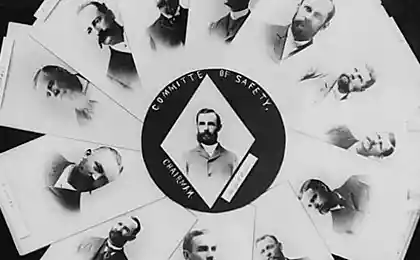184
Thanks to a rude interlocutor, she learned to conduct a conversation so as not to push away, but to like.
Conversation skills useful not only in personal life, but also in business communication. By the way a person talks, you can say a lot about his character, manners, upbringing. In this article we have collected the main rules of communicationIt will help to make a good impression on the interlocutor and earn confidence in yourself.

A polite and sensitive interlocutor always commands more respect than one who constantly interrupts and inattentively listens. When we meet new people, in addition to appearance plays a decisive role. speech. Fortunately, there are simple rules that will help you stay on top of any conversation.
When you start a conversation, “throw the bait” – raise different topics and watch how the interlocutor reacts to them. It's like setting the receiver to the right wave. If a certain topic is of interest to a person, it makes sense to develop it. Another win-win way to engage in an interesting conversation with someone ask. For example, “I’m planning to buy a new phone, but I can’t choose.” Can you recommend something? ?

© Freepik Try to ask open-ended. That is, those to which you can not give a short unequivocal answer “yes” or “no”. A great combination is a compliment and a question. For example: “This cake is just a meal!” What do you make the stuffing out of? In this case, the answer will not be monosyllabic and an organic conversation will start on its own.
Optimal topics for communication It is important to carefully consider the choice of the subject of conversation. It is always better to start with neutrality. Like talking about the weather. This is what polite English people usually start a conversation with. Next, you can discuss local news, pets, served dishes or landscape. If you notice that the interlocutor is especially interested in any of these topics, you can safely develop it.
459867
© Freepik Of course there is. Topics that are best avoided in any conversation. First, you should refrain from numerous stories about yourself. Constant “yakan” will make a negative impression. Especially if the interviewer does not have the opportunity to insert a word. Also, do not torment a person with stories about his beloved child, no matter how wonderful he was. Especially if your partner doesn’t have children. Leave it to the company of moms and grandmas.
It is not good to discuss other people, especially negatively about those who are absent. The interviewer will think, “What if he speaks about me behind my back?” Gossip isn't pleasant enough. Also, people do not tolerate endless whining and complaints. Lack of money, hateful work, boring husband, poor health and so on. You want to stay away from such people.

Freepik is considered a bad tone. money-related matters. Especially if people don’t know each other well. Think about it ten times before asking how much a new watch costs. And it is better not to discuss salary issues with anyone except relatives and very close people.
You should also not exaggerate topics related to poor health, ailments of the interlocutor, unhappy relationships or other life troubles. It's a personal border crossing. For example, a phrase in the style: “I heard that you and Misha are divorcing” will not be very pleasant to the interlocutor. If a person does not have the desire to talk about it, he will have to somehow get out, change the topic, experiencing discomfort. Do not put the interlocutor in a position in which he would not want to be himself.

Extremely careful should be with political and religious views, ranks, national issues. These topics can escalate into violent conflict and end in mutual hostility. This is especially important if You don’t know what your partner’s views are.. One rash remark can greatly offend a person.
The ability to listen to a conversation is also a skill. listen carefully. The main principle is a minimum of intervention. But it is important to make it clear that you are listening, not in the clouds. You can insert short lines: “Yes”, “I understand you”, “I agree”. These words will help the interlocutor, but will not confuse the mind. Signals of our attention can be non-verbal signs: nodding of the head, facial expressions.

© Freepik But if you don't understand something, better politely ask to explain or repeatNot mindlessly nodding. If you politely say, “I’m sorry, I didn’t quite understand what you mean,” the interlocutor will gladly interpret what was said. To make sure that you understand the essence of the question, you can say “If I understand you correctly, then...” But it is better not to interrupt a person in the middle of a word when he presents a thought. Wait for the interviewer to talk.

© Freepik also should not speech-correct Another person. It's completely tactless and rude. This behavior only repels and does not speak of your literacy and learning.
If you want people to enjoy talking to you, be sensitive. Observe the interlocutor, his reactions and emotions. Pay attention to what he likes, and what, on the contrary, repels. Enough for that. consideratelyTo be present in the here and now, and not to fly in the clouds and think about your own while the person leads the story.

© Freepik These elementary rules of communication with people will help you to establish contact with new acquaintances, earn their respect and make a positive impression. We had an interesting article on how to behave in a restaurant. We recommend to familiarize yourself so as not to fall into the mud face during dinner in a respected circle.
What do you think should be avoided in conversation with unfamiliar people? Do you talk about money with friends and girlfriends? Tell us in the comments, it will be interesting to know!

A polite and sensitive interlocutor always commands more respect than one who constantly interrupts and inattentively listens. When we meet new people, in addition to appearance plays a decisive role. speech. Fortunately, there are simple rules that will help you stay on top of any conversation.
When you start a conversation, “throw the bait” – raise different topics and watch how the interlocutor reacts to them. It's like setting the receiver to the right wave. If a certain topic is of interest to a person, it makes sense to develop it. Another win-win way to engage in an interesting conversation with someone ask. For example, “I’m planning to buy a new phone, but I can’t choose.” Can you recommend something? ?

© Freepik Try to ask open-ended. That is, those to which you can not give a short unequivocal answer “yes” or “no”. A great combination is a compliment and a question. For example: “This cake is just a meal!” What do you make the stuffing out of? In this case, the answer will not be monosyllabic and an organic conversation will start on its own.
Optimal topics for communication It is important to carefully consider the choice of the subject of conversation. It is always better to start with neutrality. Like talking about the weather. This is what polite English people usually start a conversation with. Next, you can discuss local news, pets, served dishes or landscape. If you notice that the interlocutor is especially interested in any of these topics, you can safely develop it.
459867
© Freepik Of course there is. Topics that are best avoided in any conversation. First, you should refrain from numerous stories about yourself. Constant “yakan” will make a negative impression. Especially if the interviewer does not have the opportunity to insert a word. Also, do not torment a person with stories about his beloved child, no matter how wonderful he was. Especially if your partner doesn’t have children. Leave it to the company of moms and grandmas.
It is not good to discuss other people, especially negatively about those who are absent. The interviewer will think, “What if he speaks about me behind my back?” Gossip isn't pleasant enough. Also, people do not tolerate endless whining and complaints. Lack of money, hateful work, boring husband, poor health and so on. You want to stay away from such people.

Freepik is considered a bad tone. money-related matters. Especially if people don’t know each other well. Think about it ten times before asking how much a new watch costs. And it is better not to discuss salary issues with anyone except relatives and very close people.
You should also not exaggerate topics related to poor health, ailments of the interlocutor, unhappy relationships or other life troubles. It's a personal border crossing. For example, a phrase in the style: “I heard that you and Misha are divorcing” will not be very pleasant to the interlocutor. If a person does not have the desire to talk about it, he will have to somehow get out, change the topic, experiencing discomfort. Do not put the interlocutor in a position in which he would not want to be himself.

Extremely careful should be with political and religious views, ranks, national issues. These topics can escalate into violent conflict and end in mutual hostility. This is especially important if You don’t know what your partner’s views are.. One rash remark can greatly offend a person.
The ability to listen to a conversation is also a skill. listen carefully. The main principle is a minimum of intervention. But it is important to make it clear that you are listening, not in the clouds. You can insert short lines: “Yes”, “I understand you”, “I agree”. These words will help the interlocutor, but will not confuse the mind. Signals of our attention can be non-verbal signs: nodding of the head, facial expressions.

© Freepik But if you don't understand something, better politely ask to explain or repeatNot mindlessly nodding. If you politely say, “I’m sorry, I didn’t quite understand what you mean,” the interlocutor will gladly interpret what was said. To make sure that you understand the essence of the question, you can say “If I understand you correctly, then...” But it is better not to interrupt a person in the middle of a word when he presents a thought. Wait for the interviewer to talk.

© Freepik also should not speech-correct Another person. It's completely tactless and rude. This behavior only repels and does not speak of your literacy and learning.
If you want people to enjoy talking to you, be sensitive. Observe the interlocutor, his reactions and emotions. Pay attention to what he likes, and what, on the contrary, repels. Enough for that. consideratelyTo be present in the here and now, and not to fly in the clouds and think about your own while the person leads the story.

© Freepik These elementary rules of communication with people will help you to establish contact with new acquaintances, earn their respect and make a positive impression. We had an interesting article on how to behave in a restaurant. We recommend to familiarize yourself so as not to fall into the mud face during dinner in a respected circle.
What do you think should be avoided in conversation with unfamiliar people? Do you talk about money with friends and girlfriends? Tell us in the comments, it will be interesting to know!
I pull out ripped tulips with bulbs, agitate my neighbor to snatch theirs too.
When Faina Ranevskaya came late love in the image of Marshal Tolbukhin























